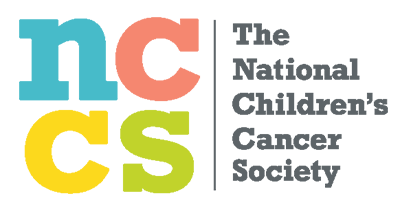Childhood cancer survivors can sometimes develop learning difficulties as a result of the treatment they received. Academic problems can appear immediately or several years after treatment has ended. Sometimes they do not develop at all.
Childhood cancer studies continually reveal new facts about the impact of late effects on learning. Since childhood cancer is rare, many educators are not aware that treatment can negatively affect a child’s learning. Parents may need to advocate for their children and inform the school staff about learning late effects.
Common learning problems include the inability to:
- Actively participate in a conversation
- Complete tasks in a timely manner
- Complete tasks on time, both in class and at home
- Comprehend what was read
- Detect social cues
- Pay attention
- Perform math calculations (e.g., multiplication, division)
- Plan and organize
- Process new information
- Process, copy or write information after seeing it
- Remember visual information rather than auditory
- Remember what was just taught, read, etc.
- Sequence information
- Write and/or spell
What You Can Do
If you notice your child is having learning problems, there are laws and resources to help.
Federal guidelines are in place to ensure that every child’s special educational needs are met. The Individuals with Disabilities Education Act (IDEA) states that “children with disabilities” are entitled to a “free appropriate public education which includes special education and related services to meet the unique needs of all disabled individuals between the ages of 3-21.”
Related services covered under IDEA include physical, occupational and speech therapies, counselling, sign language interpretation and providing classroom aides. IDEA lists several categories of disabilities and impairments, but most children with cancer are eligible under the “other health impairment category.”
When your child is first diagnosed, consider requesting a 504 Plan and maintain it through high school. A 504 Plan is part of the Rehabilitation Act of 1973 and requires schools to meet the needs of students with disabilities.
Resources are easier to access when the plan is already in place. Some accommodations include reduced classwork, technology aids, extended time on tests, etc.
As a child gets older, problems that may not have been noticeable before can surface. Frequent neuropsychological evaluations are recommended to identify and address problems as early as possible. Speak with school administrators about getting neuropsychological testing that evaluates the following:
- Applied abilities – reading decoding and comprehension
- Attention
- Planning and organization
- Processing speed
- Visual, verbal and working memory
- Visual-motor integration
(After treatment information provided by Dr. Daniel Armstrong, Director, Mailman Center for Child Development.)
A Success Story

Trayten’s IEP provided a teacher’s aide who read tests to him and provided one-on-one tutoring. The school met with Brandon two-three times per year to set goals and then created a plan to help Trayten reach those goals.
Through a lot of hard work, Trayten just graduated from high school and is enrolled in a vocational program. Brandon’s advice to other parents is to “utilize the resources schools provide, get help from school counselors and meet regularly with the school to ensure your child receives the services they deserve.”
Learning late effects can be frustrating and it’s easy to get overwhelmed but you are not alone. There are many resources to help you through this journey. Your child and your family are survivors! You have overcome many obstacles together and you can get through this together too.
Find more helpful information in the NCCS publication for parents, “The Other Side of the Mountain.” All publications are free and can be found here.
(*An IEP is an Individualized Education Program available to children who need special education due to a disability. It is a legal document created by a child’s parent and school district personnel who are knowledgeable about the child’s specific needs. The IEP outlines present levels of performance, needs and strengths to create measurable goals in order to provide accommodations, related services, modifications and academic instruction to help children reach educational goals.)

